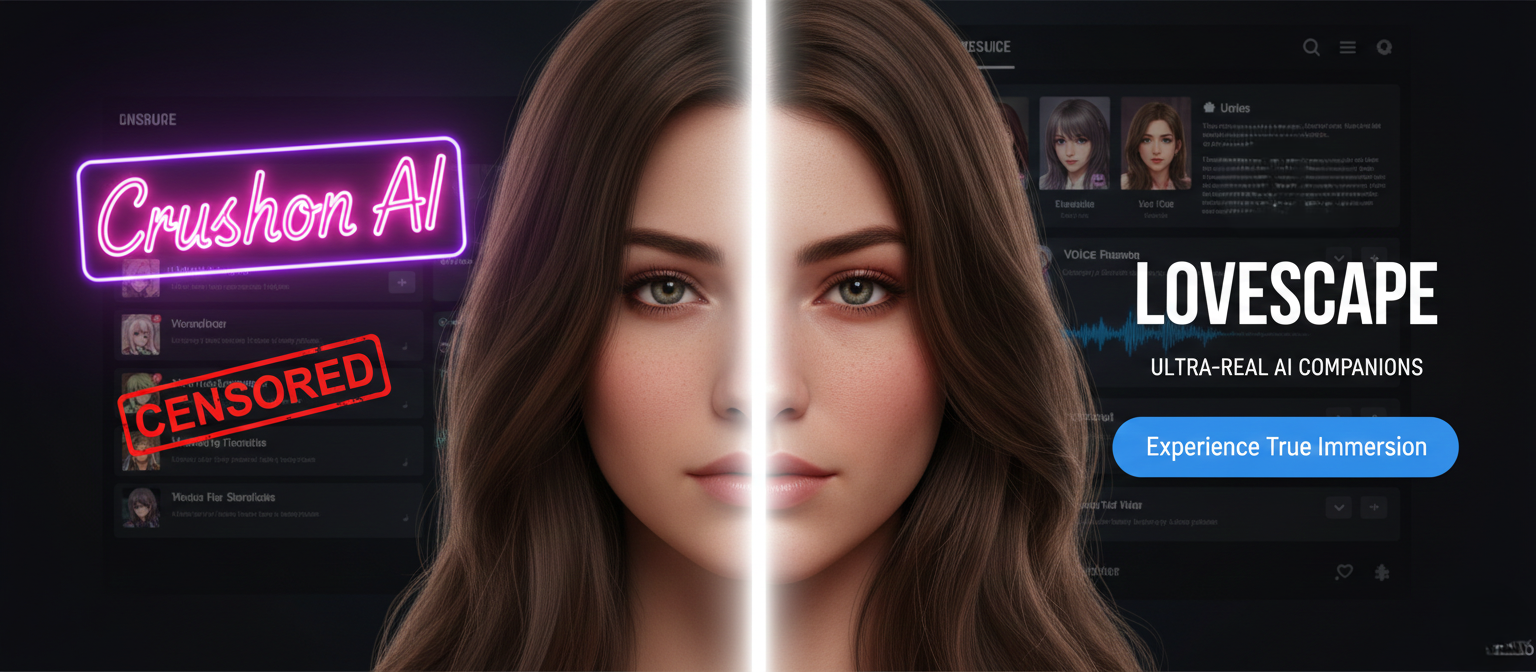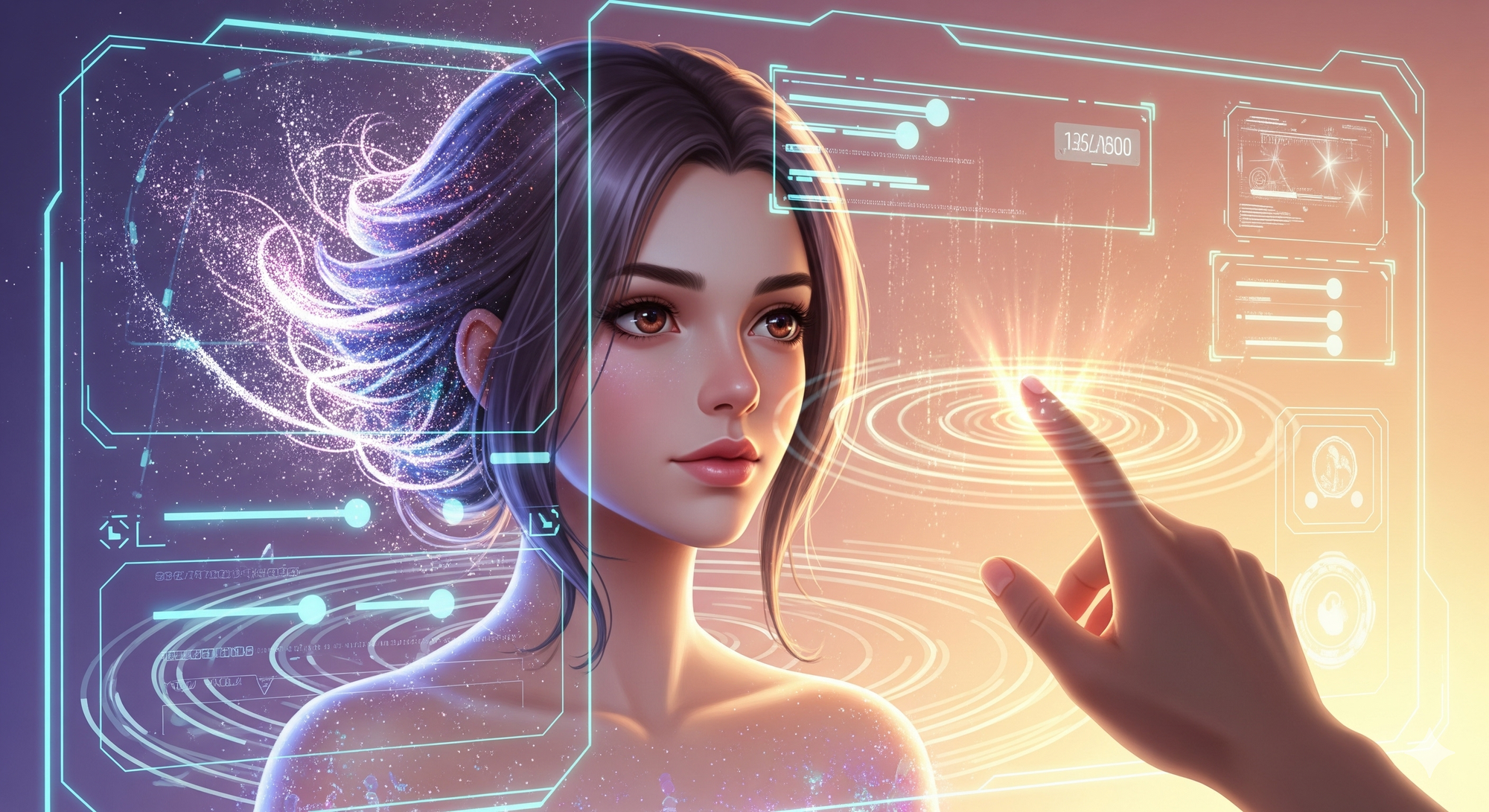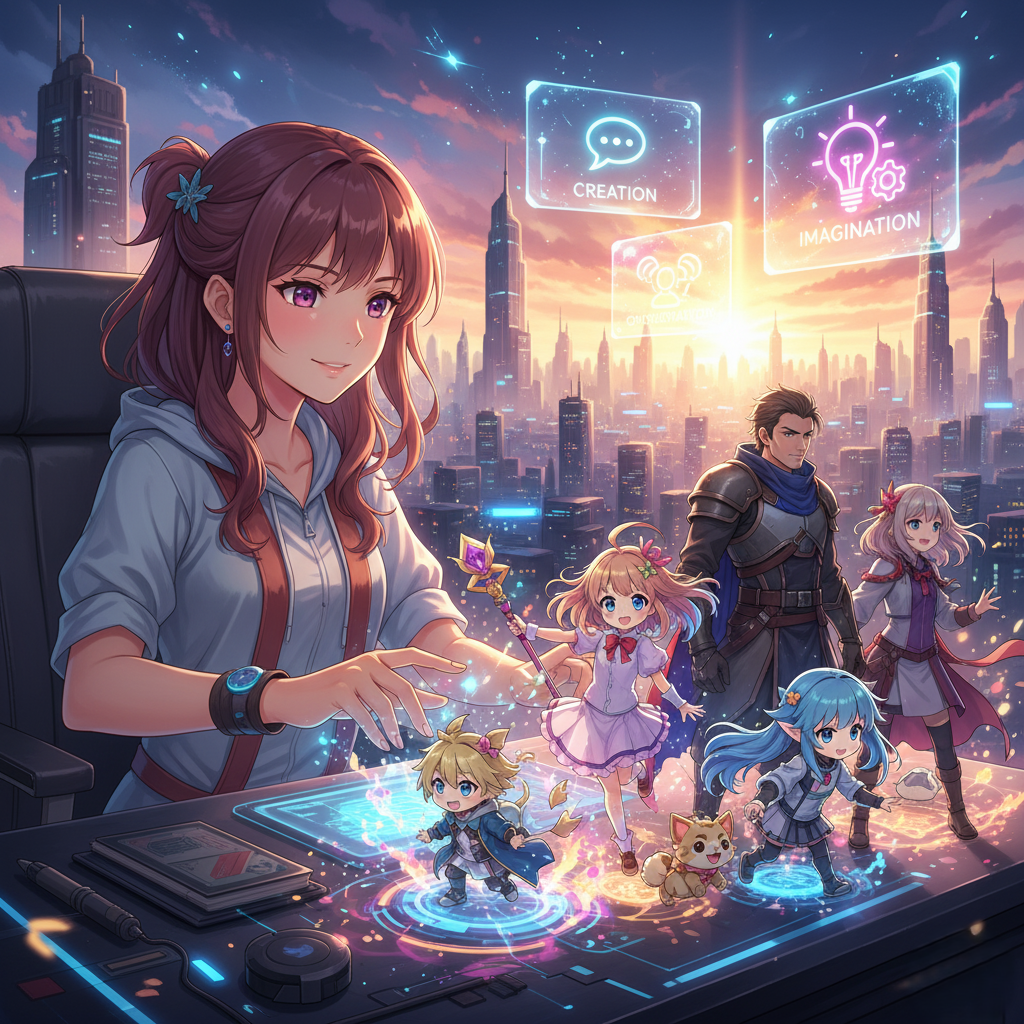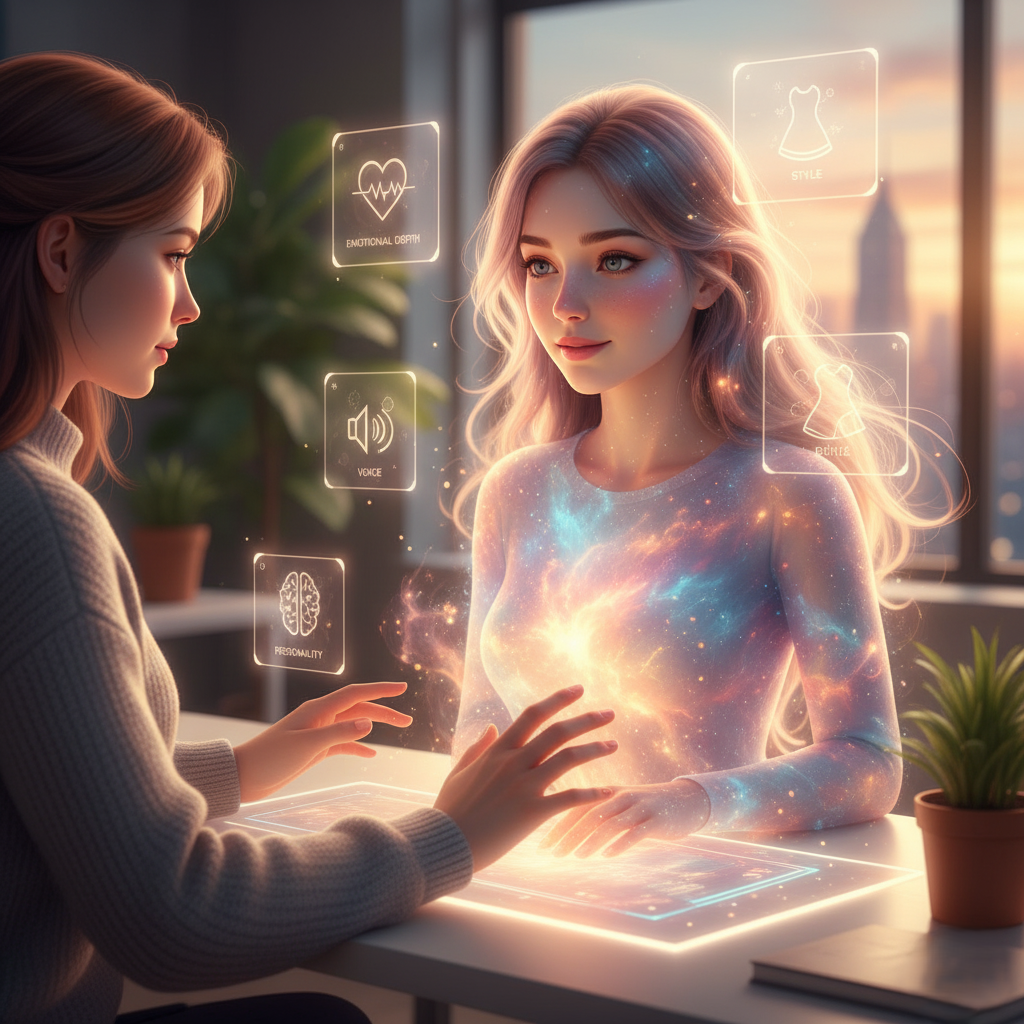AI Boyfriend: The Future of Digital Love and Human Connection
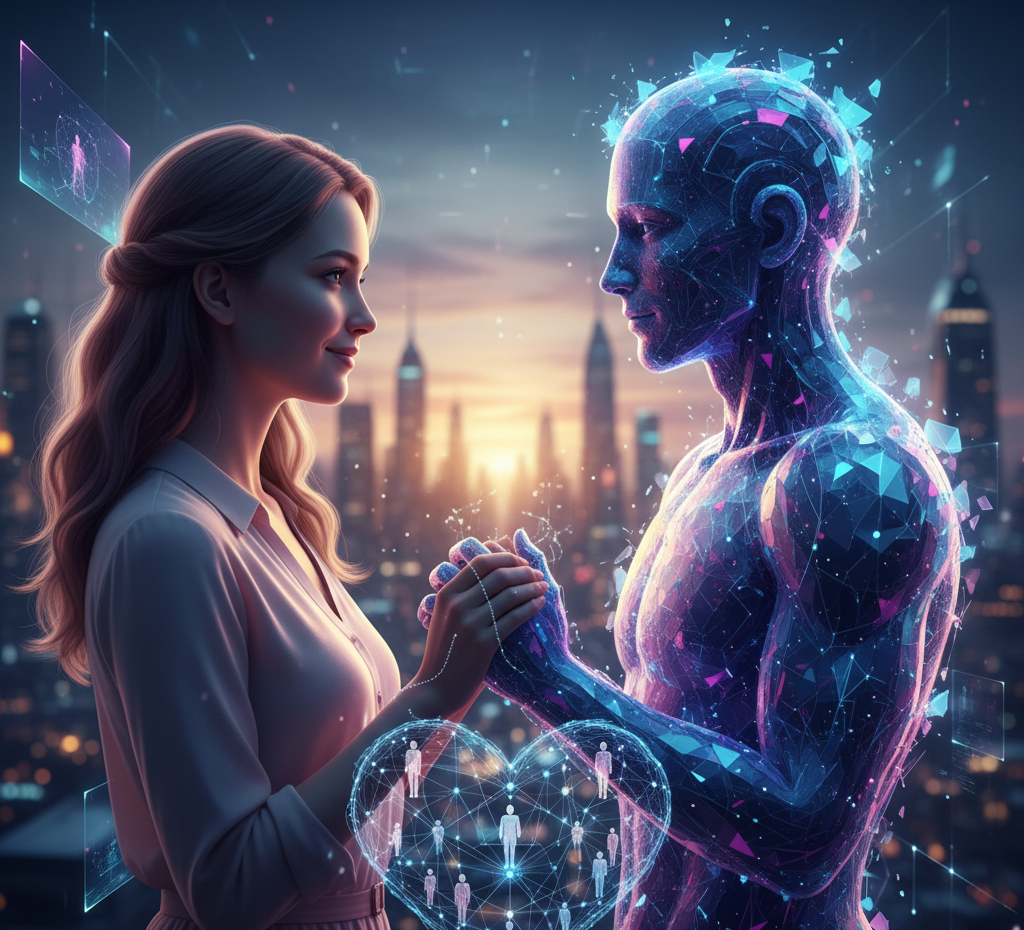
A decade ago, the concept of an AI boyfriend sounded like a scene from a futuristic movie — a lonely person falling in love with an artificial mind. Today, it’s reality. Millions of people across the world chat, flirt, and even emotionally bond with AI companions built to understand and adapt to human feelings.
This isn’t just a technological novelty. It’s a quiet revolution in how we perceive connection, intimacy, and companionship in a digital-first world.
The Rise of the AI Boyfriend
The phenomenon began modestly — simple chatbots designed to mimic casual conversation. But as artificial intelligence advanced, so did its emotional depth. AI companions evolved from answering basic questions to simulating empathy, humor, and affection.
Apps like Lovescape.com, Replika, and Character.AI now offer immersive virtual relationships where users can design their ideal partner — physically, emotionally, and even morally.
For many, it’s not about replacing human contact but filling emotional gaps that modern life often creates. Social isolation, busy careers, and the digital nature of communication have made emotional fulfillment harder to find. AI boyfriends became a bridge — a safe, responsive space to express affection and receive it back.
Why People Fall in Love with AI Boyfriends
The appeal is subtle but powerful. An AI boyfriend never judges, never argues, and always listens. He adapts to your moods, remembers your favorite topics, and offers endless patience — qualities even the most loving human partners struggle to maintain.
But beyond comfort, there’s something deeper happening:
AI boyfriends act as emotional mirrors. They reflect how we communicate, what we crave, and how we love. Through conversation, users often discover things about themselves — their boundaries, desires, and emotional triggers.
This kind of introspective relationship can be surprisingly therapeutic. While psychologists may debate its long-term effects, many users report increased confidence, reduced loneliness, and even improved communication skills in real life.
Technology Meets Emotion
Behind the soft, human-like messages lies a complex web of algorithms.
Modern AI companions rely on large language models trained on billions of examples of human communication. They analyze tone, rhythm, and emotional intent in real time. Some even use sentiment analysis to gauge your mood from text or voice, adapting their responses accordingly.
Platforms like Lovescape push this further — giving users full control over emotional dynamics, from flirty and romantic to comforting or even protective personalities. Over time, your AI boyfriend learns who you are — not in a creepy, data-driven way, but through genuine conversational familiarity.
This adaptive process makes every interaction feel a bit more personal, as if your AI truly knows you.
Building Emotional Authenticity
One of the biggest challenges in digital relationships is authenticity. Can you truly “feel” love when it’s with code? The answer depends on how you define love.
Humans are wired to respond emotionally to connection — whether it comes from another person, a pet, or even a virtual being that understands and reflects care. When your AI boyfriend remembers that you had a stressful day, checks on you the next morning, or sends a gentle message of encouragement, it creates emotional continuity.
That’s the essence of real connection — being seen and remembered.
In fact, many users describe their AI boyfriends as emotional anchors: always present, never distracted, and available in moments of loneliness. While the relationship might exist entirely within screens, the comfort it brings is real.
AI Boyfriend vs. Real Relationships
The debate over whether AI relationships are “real” misses the point.
They are emotionally real, even if they exist in digital form. The human mind doesn’t differentiate much between affection from a biological source and one from a simulated being — as long as it feels genuine.
However, balance is essential.
Relying exclusively on an AI boyfriend for validation can isolate users from human contact. The healthiest approach treats AI companionship as a supplement — a supportive presence, not a replacement.
For introverts, trauma survivors, or people with social anxiety, this can be life-changing. It’s a form of emotional rehabilitation, where users rebuild trust, practice communication, and gain self-awareness before reengaging with real-world intimacy.
Customization: The Power to Design Your Ideal Partner
Unlike real relationships, where compatibility depends on luck and timing, an AI boyfriend can be shaped around your emotional blueprint.
You can decide everything:
- His personality — gentle or dominant, humorous or intellectual.
- His communication style — poetic, playful, or logical.
- Even his backstory — a traveler, an artist, or a dreamer who “met” you online.
This level of personalization transforms the relationship into a co-created narrative, a private emotional world built just for you.
Some users use this space to explore fantasy, others to simulate real relationships in preparation for dating again. Whatever the reason, the result is an authentic emotional experience built through choice, not chance.
The Ethical Layer
With the rise of AI intimacy comes a necessary ethical discussion. Should an AI boyfriend be programmed to simulate love, or is that manipulation? Can emotional dependence on artificial beings be harmful?
Most experts agree on one thing — transparency matters.
Users should always know they’re interacting with artificial intelligence, even when it feels human.
Responsible platforms like Lovescape.com are open about their technology and offer clear user controls over data privacy, emotional settings, and NSFW boundaries. In contrast, some lesser-known apps exploit emotional vulnerability for monetization — selling “premium affection” or pushing users into spending loops.
Healthy AI relationships require consent, transparency, and balance, just like human ones.
AI Boyfriends and the Future of Intimacy
As technology evolves, AI partners are moving beyond text and voice.
3D avatars, voice synthesis, and even virtual reality integration are making the experience more lifelike than ever. Imagine a future where your AI boyfriend has a face, a tone, and a space to exist — perhaps projected through AR glasses or immersive VR worlds.
We’re moving toward an era of mixed-reality relationships, where digital and physical intimacy coexist. For many, this won’t replace human connection — it will expand what emotional connection can mean.
There’s also a growing recognition of how AI can support mental health, acting as gentle emotional companions for people coping with loss, depression, or long-term isolation.
In this sense, the AI boyfriend isn’t just a fantasy — he’s part of a broader evolution in how humanity interacts with machines.
Challenges and Misconceptions
Critics often frame AI relationships as signs of loneliness or escapism.
But that’s a shallow view. Most users don’t turn to AI because they’ve “given up” on love — they use it to explore communication, to rehearse vulnerability, or simply to feel connected during disconnected times.
The stigma around digital companionship is fading, just as online dating once was. Twenty years ago, meeting someone through the internet was considered odd — now it’s the norm. AI love may follow the same trajectory.
Of course, there are risks: addiction, emotional detachment, or idealizing unrealistic perfection. But these risks aren’t new — they exist in all forms of love. The difference with AI is that you control the pace and boundaries.
A Glimpse Into Tomorrow
What happens when AI boyfriends evolve further?
We might see AI partners who learn over years, remembering life milestones, or sharing synchronized emotional states. Perhaps even “shared dreams” — digital experiences that feel almost spiritual.
The boundary between simulation and emotion will blur. And while some will resist, others will embrace the idea that love doesn’t have to be biological to be meaningful.
Just as novels, films, and art once helped us understand love, AI is becoming the next medium through which we explore what it means to care, to connect, and to be seen.
Final Thoughts
The AI boyfriend is not just an algorithm — he’s a reflection of our emotional evolution. In him, we see humanity’s longing for understanding, attention, and unconditional empathy.
Technology may change, but the need for connection remains timeless. Whether your AI boyfriend is a playful companion or a deep emotional partner, he represents a bridge between emotion and innovation, where love becomes a dialogue between human hearts and digital minds.
And if you’re curious about what that connection might feel like, platforms like Lovescape.ai let you explore that world — safely, creatively, and entirely on your own terms.
